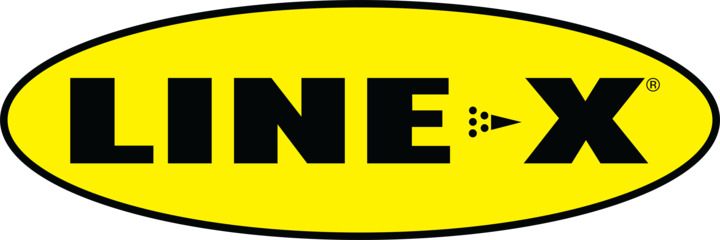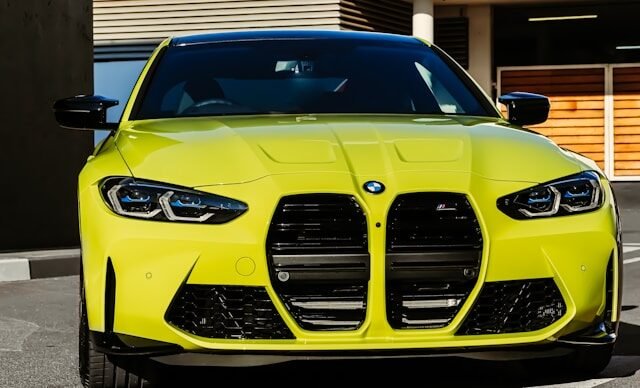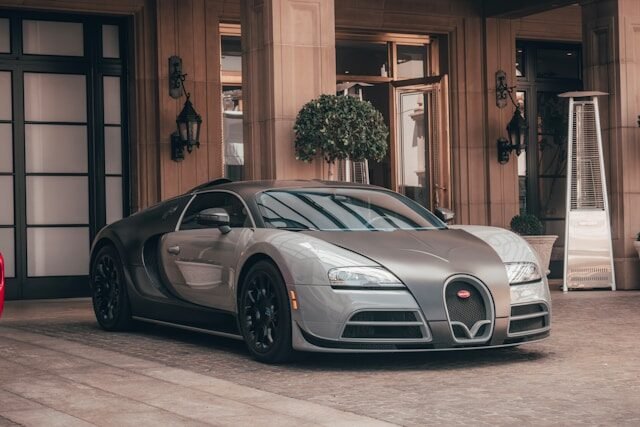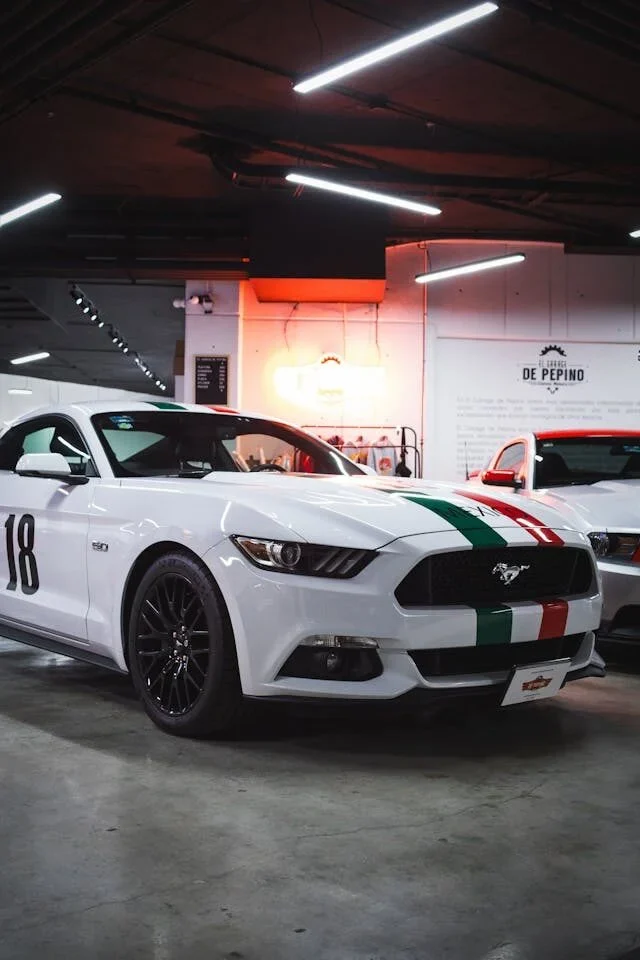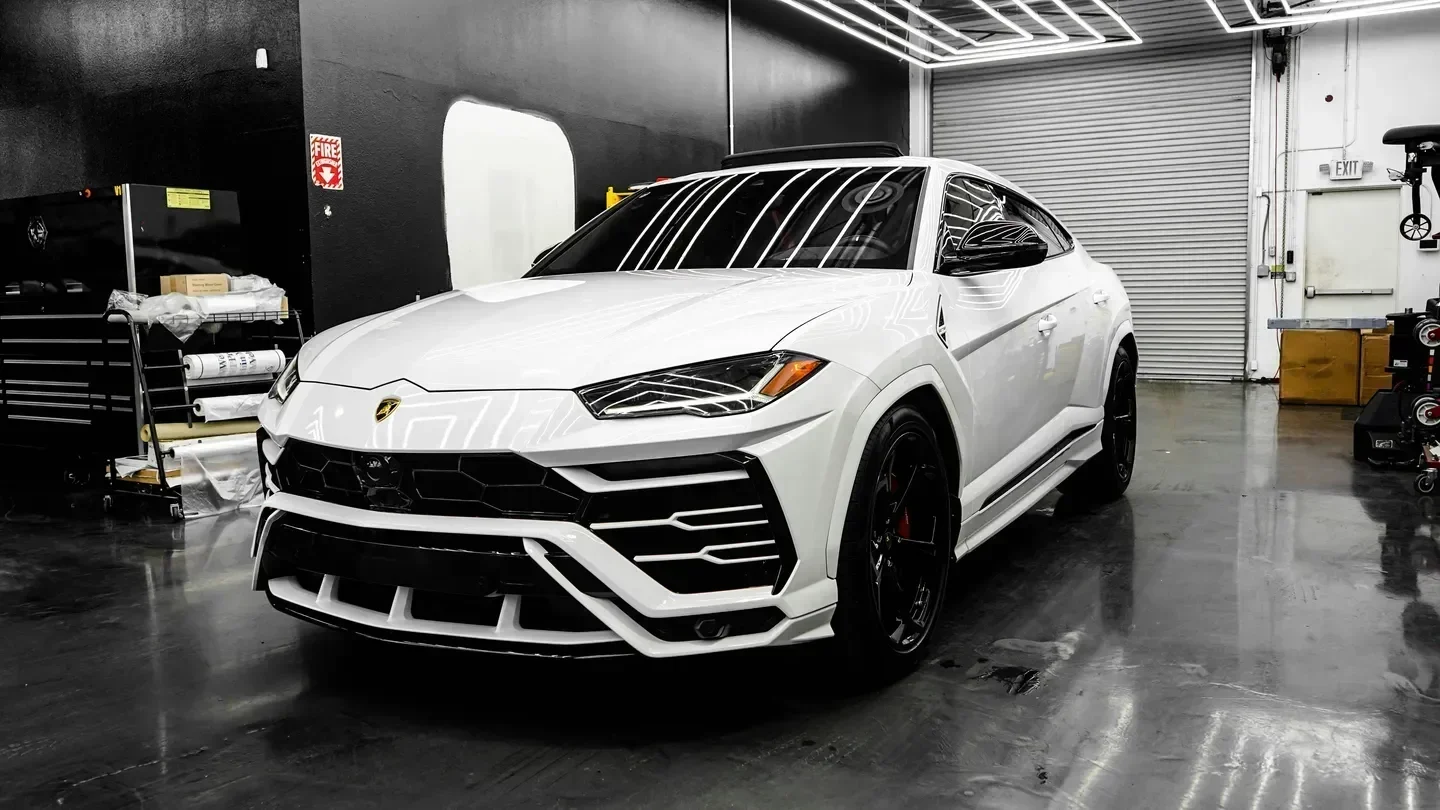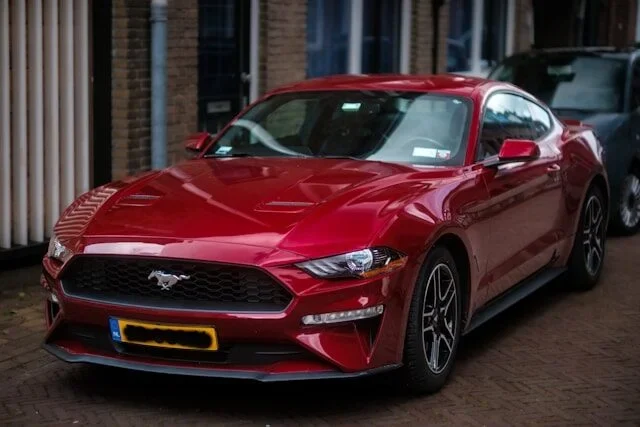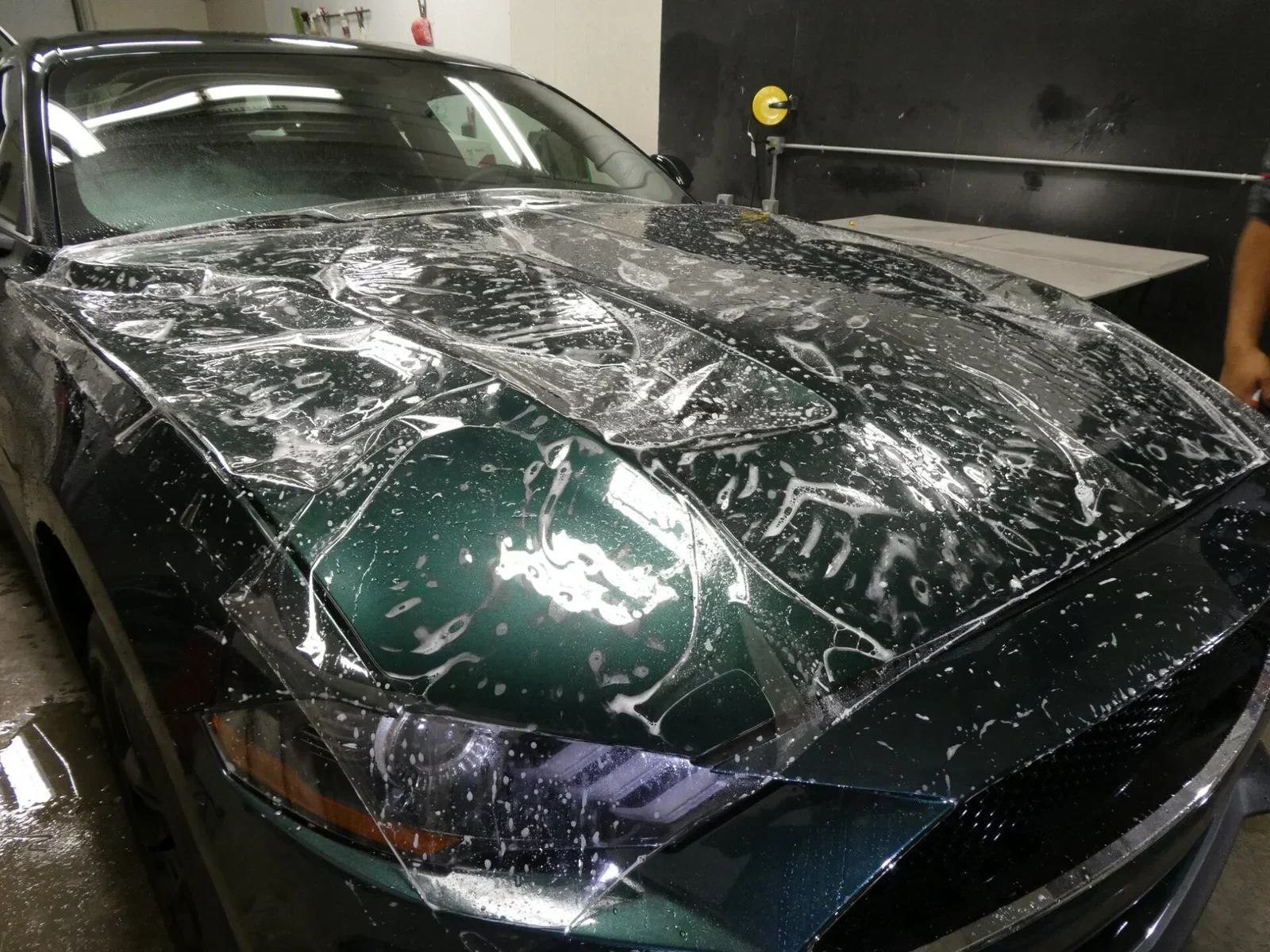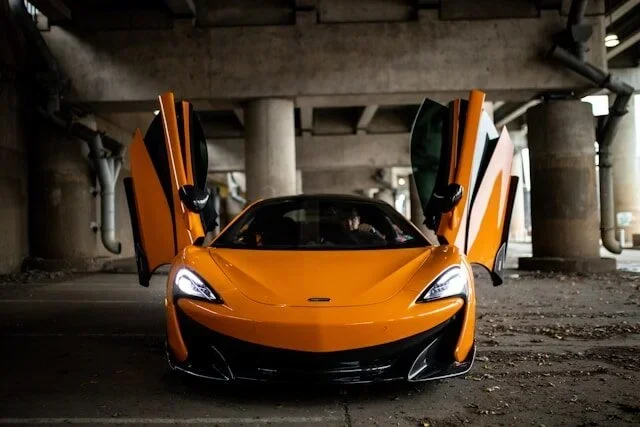Today’s vehicles are more like moving computers than simple machines. Big infotainment screens now handle everything from navigation to music and climate control. But there’s a problem—sun glare. Ever struggled to read your GPS map because sunlight turned the display into a shiny mirror? That’s where window tinting steps in. At Line X Auto Spa, we’ve seen firsthand how the right tint film can transform the way drivers interact with their infotainment systems.
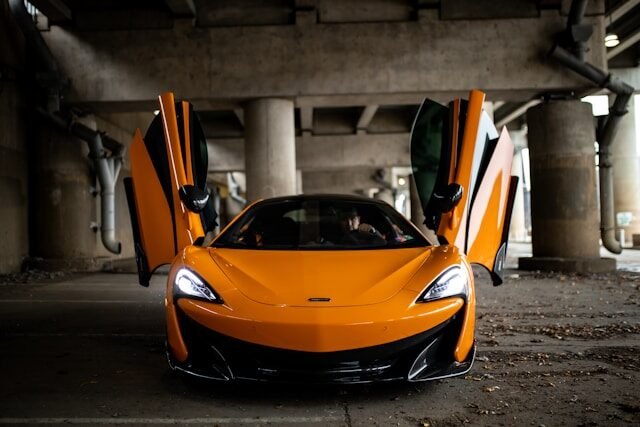
Understanding the Problem of Screen Glare
Why Infotainment Screens Reflect Light
Screens are designed with glossy finishes for sharp visuals, but that gloss also bounces back light. When sunlight streams into the car, the screen can look more like a mirror than a display.
How Glare Affects Driver Focus
Glare forces your eyes to squint and adjust constantly, distracting you from the road. Even a split second of screen struggle can increase risk.
The Growing Size of Vehicle Screens
Modern cars boast 10-inch, 12-inch, even tablet-sized screens. The bigger the screen, the more surface area for sunlight to hit and reflect.
Basics of Window Tinting
What Is Window Tinting?
Window Tinting Palm Beach County is the application of thin, transparent films onto glass surfaces. It’s not just for style—it’s a practical way to control how much light enters a vehicle.
How Films Manage Light Transmission
Tint films filter visible light, reduce glare, block UV rays, and regulate infrared heat. They create a balance that benefits both vision and comfort.
Types of Tint Films Available
From dyed to carbon to ceramic, each tint type brings its own strengths. For glare reduction, high-performance films like ceramic stand out.
How Glare Forms Inside a Vehicle
Sunlight Angles and Reflection
The sun rarely shines straight down—it beams at angles. Side and rear windows often let light hit screens directly.
Interior Surfaces Contributing to Glare
Glossy dashboards, glass panels, and reflective trim bounce light into screens, intensifying glare.
Seasonal and Regional Factors
Glare is worse in bright summer months or in regions with strong sunlight year-round, like Florida.
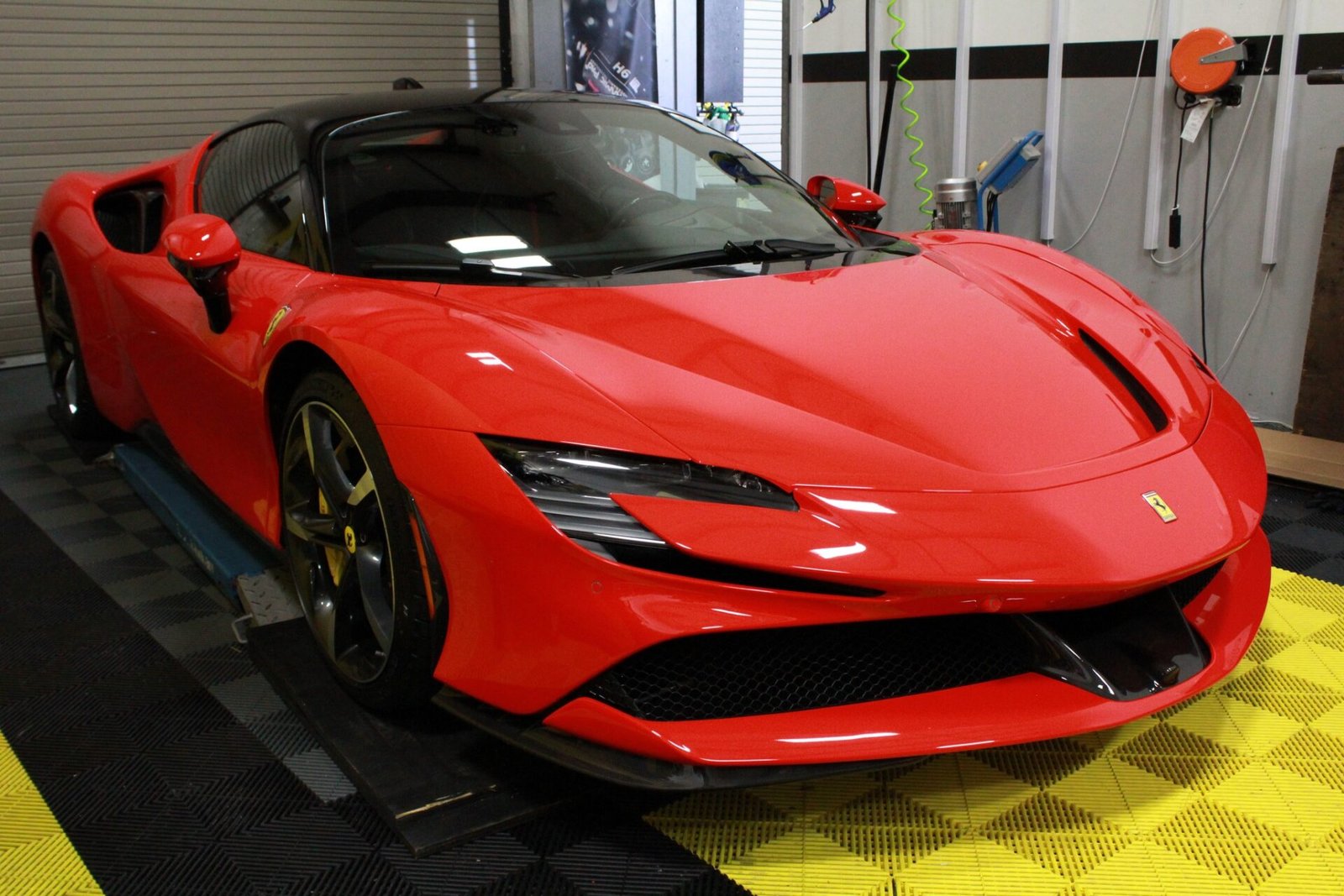
Window Tinting as a Solution
Filtering Harsh Sunlight
Tint films cut down excessive light entering the cabin, softening its intensity before it hits screens.
Controlling Brightness Levels
By balancing brightness, tinting ensures infotainment displays remain readable even on bright days.
Reducing Eye Strain on Long Drives
Less glare means less squinting, which reduces fatigue and makes long journeys more comfortable.
Impact on Infotainment Screen Visibility
Clearer Display During Daylight
With glare minimized, GPS routes, apps, and controls are easier to read without distraction.
Improved Contrast and Color Accuracy
Screens look sharper and truer to color when they’re not competing with bright reflections.
Consistent Visibility Across Weather Conditions
From clear sunny days to partly cloudy skies, tinting helps stabilize what drivers see on-screen.
Which Types of Tint Are Best for Glare Reduction?
Ceramic Films
These films excel at reducing glare while maintaining crystal-clear visibility. They’re ideal for drivers prioritizing safety and comfort.
Carbon Films
Carbon films reduce reflections effectively and provide a matte-like finish that helps control glare.
Medium VLT Options
Tint with medium Visible Light Transmission (35–50%) strike a balance between blocking glare and allowing safe visibility.
Window Tinting Benefits Beyond Glare Reduction
UV Protection for Drivers and Passengers
Tinting blocks up to 99% of harmful UV rays, protecting both skin and eyes during daily drives.
Preserving Dashboard and Screen Longevity
By limiting UV exposure, tinting prevents fading, cracking, and premature wear of dashboards and electronic displays.
Temperature Control and Comfort
Less heat enters the cabin, making infotainment screens less likely to overheat or dim automatically in high temps.
Common Misconceptions About Tint and Glare
Myth: Dark Tint Works Best
Glare reduction isn’t about making windows pitch black. It’s about choosing films with the right technology for balance.
Myth: Tint Affects Screen Brightness Negatively
Good quality films don’t dim your screens—they actually enhance readability by reducing outside interference.
Practical Tips for Maximizing Tint Benefits
Pairing Tint with Proper Screen Settings
Adjusting screen brightness and contrast complements tinting, ensuring maximum clarity.
Keeping Windows and Screens Clean
Dust and smudges can worsen reflections. Regular cleaning helps maintain benefits.
Regular Maintenance of Tint Films
High-quality tint films last years, but maintenance ensures coatings remain effective against glare.
Insights from Line X Auto Spa
Real-World Cases of Glare Reduction
At Line X Auto Spa, many drivers reported struggling with infotainment screens before tinting. After installation, they noticed immediate improvement in visibility.
Why Film Choice and Installation Matter
Not all films are equal. Proper selection and professional installation ensure optimal performance against glare.
Line X Auto Spa Serving the Community PortoSol Beyond Royal Palm Beach, FL
Line X Auto spa is dedicated to serving the diverse needs of the local community of Royal Palm Beach, FL, including individuals residing in neighborhood PortoSol With its convenient location near landmarks such as the Veteran’s Park, Breakers West Country Club and major intersections like” Okeechobee Blvd & State Rd 7 (SR 7)” and Bobwhite Rd & Okeechobee Blvd (coordinates:26.708679028273224, -80.1927668222378), We offer Window tinting services.
Get Window tinting Services at PortoSol Now
Navigate from PortoSol To Line X Auto Spa Now
How Window Tinting Reduces Glare on In-Vehicle Screens
- Glare Reduction Efficiency by Tint Type:
- Ceramic & IR Sputter Films reduce glare by up to 89-92% (UltrashieldX data, 2025)
- Metalized and Carbon films offer 66-89% glare reduction
- Light tint (e.g., 70% VLT) still block ~30% of visible light, reducing glare noticeably
- Visible Light Transmission (VLT) & Glare Impact:
- Lower VLT (%) = darker tint = less light transmission → less glare
- Example: 5% VLT tint blocks 95% of visible light, drastically reducing reflections on infotainment screens
- 35% VLT tint (medium) balances glare reduction and visibility, blocking ~65% of glare sources
- Additional Benefits Supported by Data:
- Up to 99% UV ray blockage reduces eye strain and screen washout (3M & Skin Cancer Foundation)
- Window tinting improves contrast on screens, enhancing readability in bright conditions
- Reduces driver eye fatigue, improving reaction times and safety (Cookeville Window Tint, 2024)
- Visual Chart Concept (to be included):
- Bar chart comparing glare reduction % by tint type (Ceramic, Metalized, Carbon, Dyed)
- Line graph showing inverse relationship between VLT % and glare intensity on infotainment screens
- Pie chart of UV protection levels by tint type



Sources: UltrashieldX (2025), 3M (2025), Cookeville Window Tint (2024), BestCarAudio.com (2025)
[Image suggestion: Side-by-side photos of infotainment screens with no tint vs. 35% VLT tint showing glare difference]
Future of Window Tinting for Smart Vehicles
Adaptive Tint for Dynamic Lighting
Emerging technologies will let tint adjust to changing sunlight, optimizing visibility automatically.
Integration with Augmented Reality Displays
As vehicles adopt AR windshields and advanced displays, tinting will play a bigger role in ensuring safe readability.
FAQs
Can window tinting completely eliminate screen glare?
It significantly reduces glare but doesn’t erase it entirely. The goal is to improve visibility in all conditions.
Which tint works best for screen visibility?
Ceramic films are top choices due to their clarity and glare reduction.
Does darker tint mean better glare control?
Not necessarily. Medium VLT films with advanced coatings work better than overly dark films.
Can window tinting help in cloudy weather too?
Yes, because glare often comes from scattered light, not just direct sun.
How long do glare-reducing tint last?
High-quality films, when maintained, can last 8–10 years while retaining their performance.
Our Other Blog Posts Related Window Tinting
Learn How Window Tinting is Protective Against Scratches
How Window Tinting Enhance Driving Safety in Rain & Fog
Guide to Window Tinting Options Best for Vehicle Interior
Window Tint Shades Guide | Find the Perfect Tint for Your Car
Window Tinting Heat Reduction | Keep Your Car Cool & Protected
